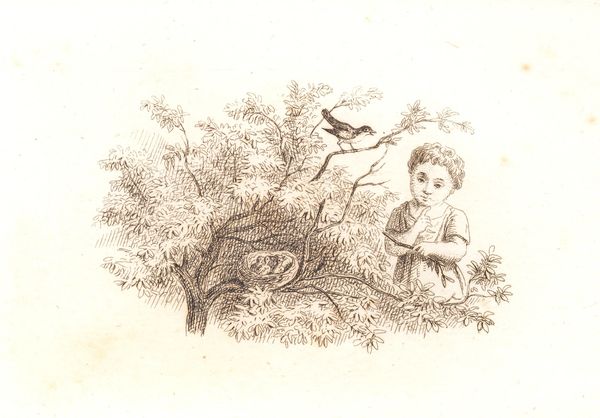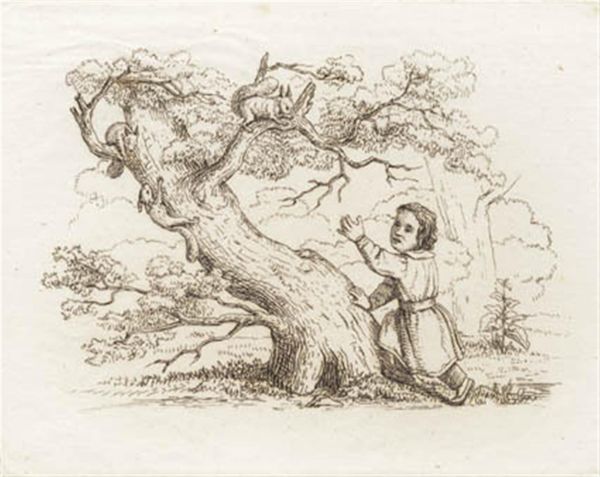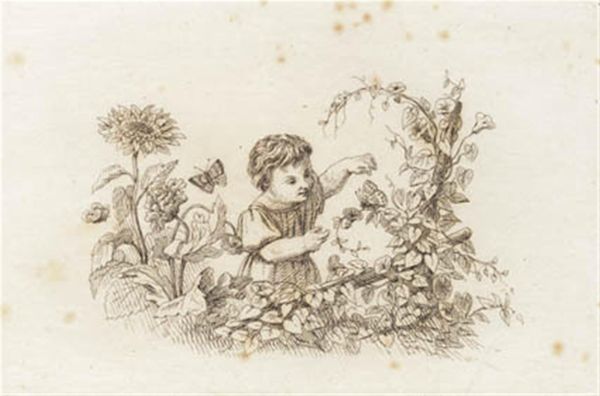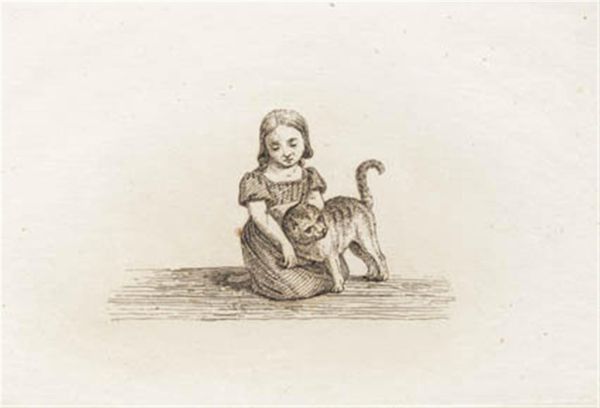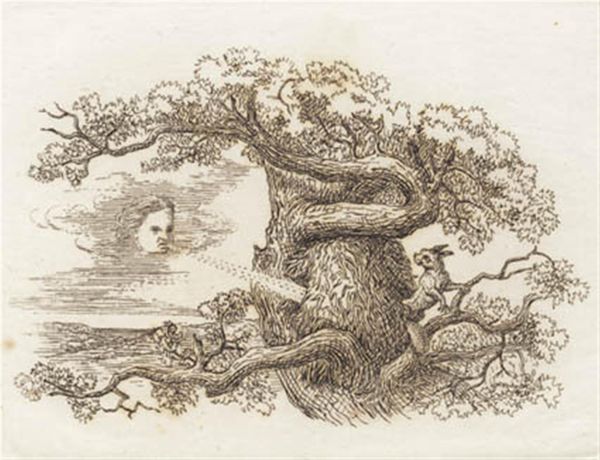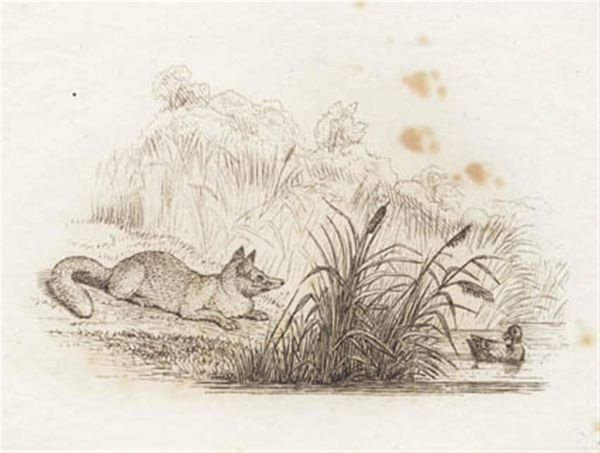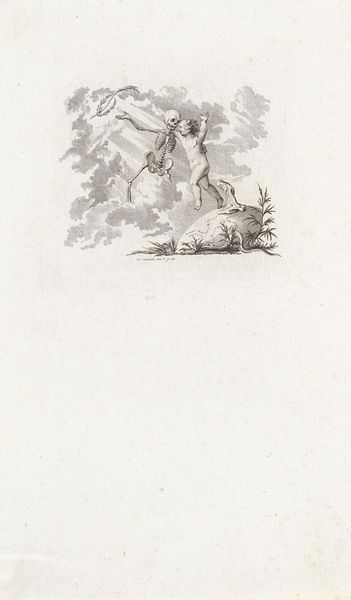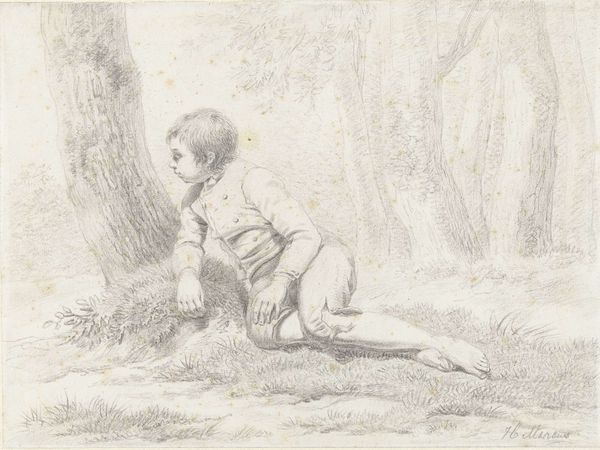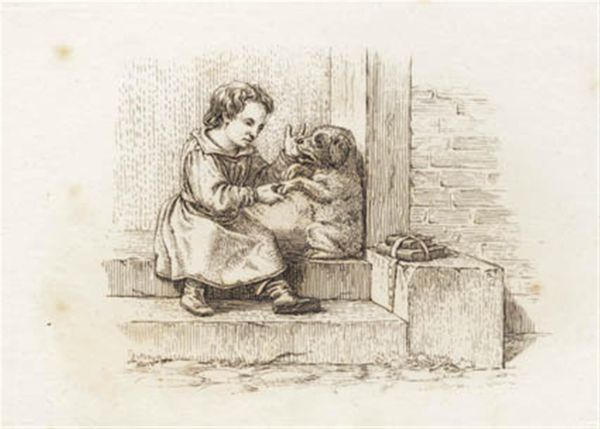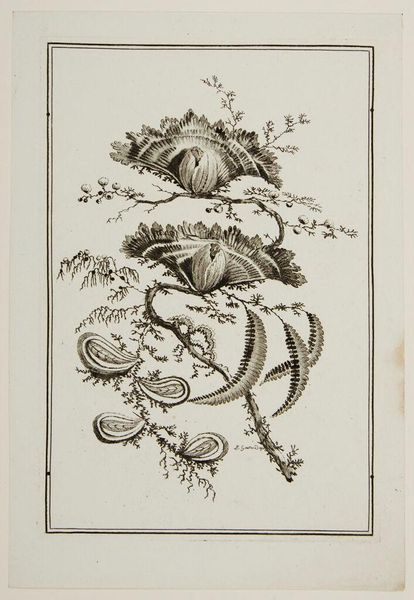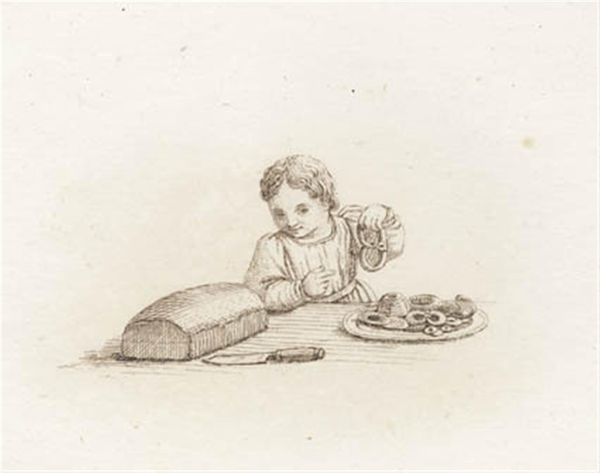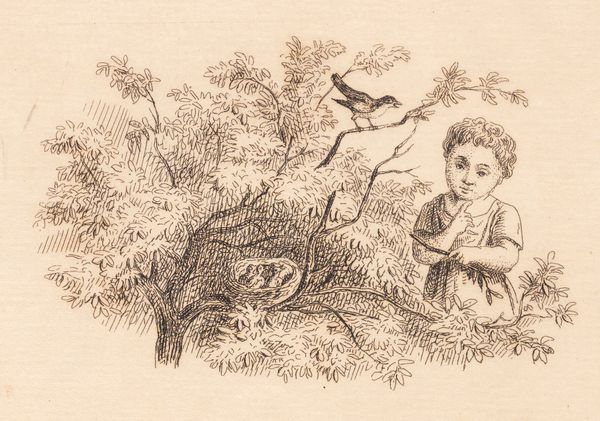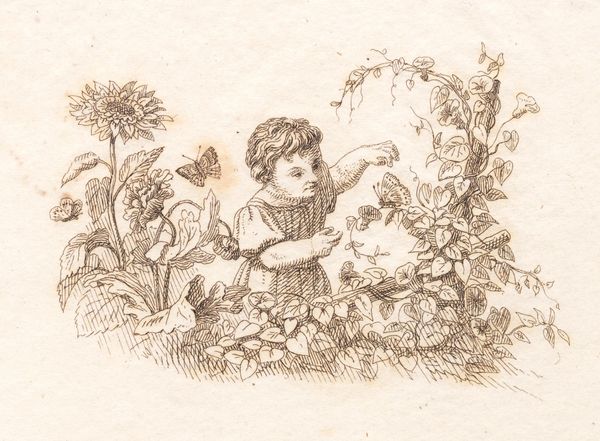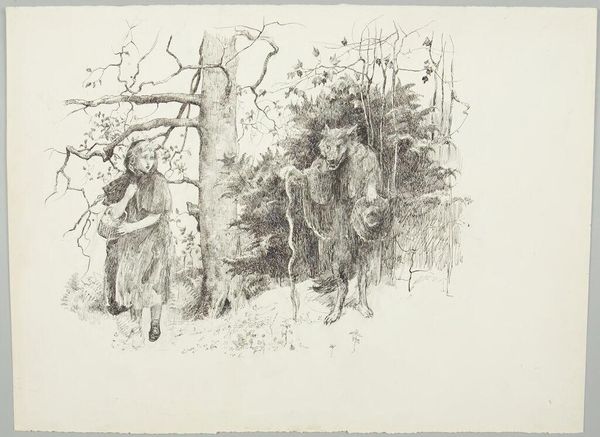
Illustration til "Halvhundrede Fabler for Børn" af Hey 1834
0:00
0:00
print, engraving
#
amateur sketch
#
light pencil work
#
quirky sketch
# print
#
pencil sketch
#
incomplete sketchy
#
pencil drawing
#
pen-ink sketch
#
pencil work
#
engraving
#
fantasy sketch
#
initial sketch
Dimensions: 143 mm (height) x 261 mm (width) (bladmaal)
Editor: So, this is Martinus Rørbye's "Illustration til 'Halvhundrede Fabler for Børn' af Hey," from 1834, done in engraving. It feels very delicate. I'm struck by the detail he manages to achieve with what appears to be such a simple material. What do you make of it? Curator: As a materialist, I see the engraving first. Consider the laborious process involved in transferring Rørbye's design onto the metal plate, each line etched demanding skilled craftmanship and labor. This print wasn’t just conceived, it was made. This elevates “mere” illustration to a unique art form with a distinctive relationship between design and production, don't you agree? Editor: I see your point about the labor, but it still looks like an illustration. How does focusing on materials change that? Curator: Look at the distribution of the print. Was this a limited, carefully marketed release? Or a mass-produced image destined for a wider, perhaps more humble audience? The context of its making is crucial. Consider how prints served to disseminate images and ideas, acting almost like a proto-mass media, connecting artistic vision with consumption and, fundamentally, broader social consciousness. What was its effect in 1834? Editor: That's a really interesting perspective, the production shaping reception... Thinking about it in that way gives me a deeper appreciation. Curator: Indeed. It reminds us that art doesn't exist in a vacuum; the artist’s material choices are an integral element to consider to further understand their meaning within specific economies of labor and exchange. The raw materials impact both design and distribution and so contribute, on a more basic level, to a work’s long-term value and social effect. Editor: This makes me rethink art in terms of accessibility. Thanks for sharing that perspective. Curator: It’s vital to remember that the 'what' is inevitably intertwined with the 'how,' the 'who,' and ultimately, the 'why.'
Comments
No comments
Be the first to comment and join the conversation on the ultimate creative platform.
